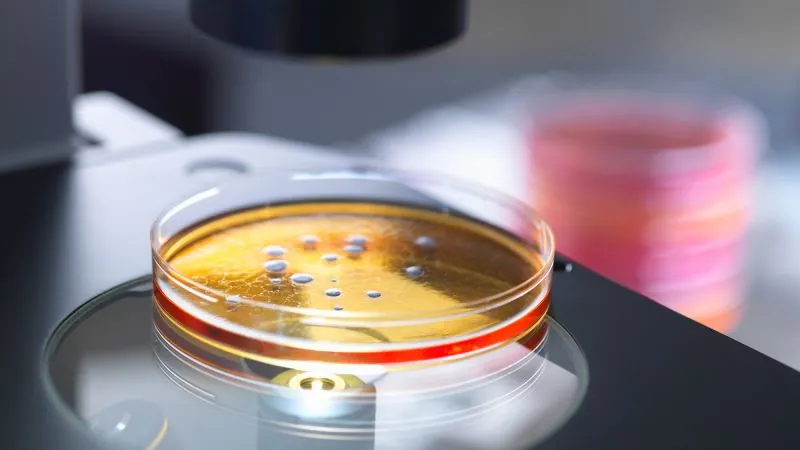
Scientists Sound Alarm Over Potential Creation of Mirror Bacteria: A Radical Shift in Life as We Know It
2024-12-16
Author: Lok
Introduction
In a groundbreaking report published in the esteemed journal Science, a coalition of 38 scientists from nine countries is raising red flags about the alarming potential of creating synthetic organisms known as mirror bacteria. This radical new approach involves crafting organisms with molecular structures that are reversed from those found in nature, which poses a multitude of risks to humans, animals, and plants.
While the detailed science and necessary technology for creating these mirror bacteria are time-consuming and still likely over a decade away, the authors of the report underscore that the potential dangers are "unprecedented" and "overlooked". Experts from various scientific fields, including immunology, ecology, and biosecurity, express deep concern over this emergent research direction.
What Are Mirror Bacteria?
Mirror bacteria would fundamentally challenge our understanding of life. All known life forms exhibit a consistent chirality, or handedness; for instance, DNA consists of "right-handed" nucleotides, while proteins are made from "left-handed" amino acids. This crucial feature means that left-handed gloves don’t fit right hands, just as molecular interactions rely heavily on chirality. The introduction of mirror bacteria could disrupt these interactions and threaten effective immune responses in organisms.
Coauthor Jonathan Jones, a prominent leader at The Sainsbury Laboratory in the UK, likened the risk to a “genie you don’t want to let out of the bottle,” emphasizing that while the likelihood of a major failure is low, the consequences of such an event could be catastrophic.
Potential Threats and Concerns
In their expansive research, the scientists indicated that the goal of creating mirror life forms is a long-term aspiration shared by many synthetic biologists aimed at grasping the very essence of life and its origins. However, they caution that unless unequivocal evidence emerges that these organisms will not pose extraordinary risks, their research endeavors should be halted. Funding bodies are urged to make it clear they will not support such rogue scientific pursuits.
Beyond immune challenges, mirror bacteria pose a risk of acting as invasive species across diverse ecosystems. "We cannot rule out a scenario in which a mirror bacterium acts as an invasive species across many ecosystems, causing pervasive lethal infections," the report warns. With the potential for rapid evolutionary adaptations, even weakly established mirror bacteria could eventually thrive and decimate native species, including humans.
Expert Opinions: A Treading on Thin Ice
Not all scientists involved in similar research view the matter with the same level of concern. Tom Ellis, a professor specializing in synthetic biology at Imperial College London, suggests that while caution is warranted, the current research remains "very much science fiction." He highlighted that even the simpler task of creating synthetic life using non-mirror molecules has proven challenging for researchers thus far.
"It makes it 1000 times harder," Ellis commented, emphasizing the enormity of the challenge—highlighting that developing self-sustaining cells capable of replicating and evolving is still a distant goal.
Conclusion
As the scientific community grapples with how to responsibly navigate these uncharted waters, the stakes have never been higher. The call for ceasing mirror bacteria research until more is known about the potential repercussions is loud and clear, with the futures of countless ecosystems hanging in the balance.
Stay tuned for ongoing developments in this critical area of scientific exploration! What could the next breakthrough bring, and how will it reshape our understanding of life itself?


 Brasil (PT)
Brasil (PT)
 Canada (EN)
Canada (EN)
 Chile (ES)
Chile (ES)
 Česko (CS)
Česko (CS)
 대한민국 (KO)
대한민국 (KO)
 España (ES)
España (ES)
 France (FR)
France (FR)
 Hong Kong (EN)
Hong Kong (EN)
 Italia (IT)
Italia (IT)
 日本 (JA)
日本 (JA)
 Magyarország (HU)
Magyarország (HU)
 Norge (NO)
Norge (NO)
 Polska (PL)
Polska (PL)
 Schweiz (DE)
Schweiz (DE)
 Singapore (EN)
Singapore (EN)
 Sverige (SV)
Sverige (SV)
 Suomi (FI)
Suomi (FI)
 Türkiye (TR)
Türkiye (TR)
 الإمارات العربية المتحدة (AR)
الإمارات العربية المتحدة (AR)